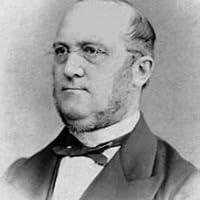
Hermann Kolbe
À propos de l'auteur
Hermann Kolbe was a prominent German chemist known for his significant contributions to organic chemistry during the 19th century. He is best recognized for his work on the synthesis of organic compounds, which laid the groundwork for modern organic chemistry. Kolbe's research included the electrolysis of various organic compounds, which led to the development of new chemical methods and the understanding of molecular structures. His influential texts, such as 'Versuch Einer Allgemeinen Physiologischen Chemie', reflect his dedication to the field and his desire to educate future generations of chemists.
In addition to his research, Kolbe was instrumental in advancing the teaching of chemistry in Germany. He served as a professor at the University of Leipzig, where he inspired many students and colleagues with his innovative approach to chemical education. His legacy continues to influence chemists today, as his work has paved the way for numerous developments in organic synthesis and analytical techniques. Kolbe's commitment to both research and education has solidified his place as a key figure in the history of chemistry.